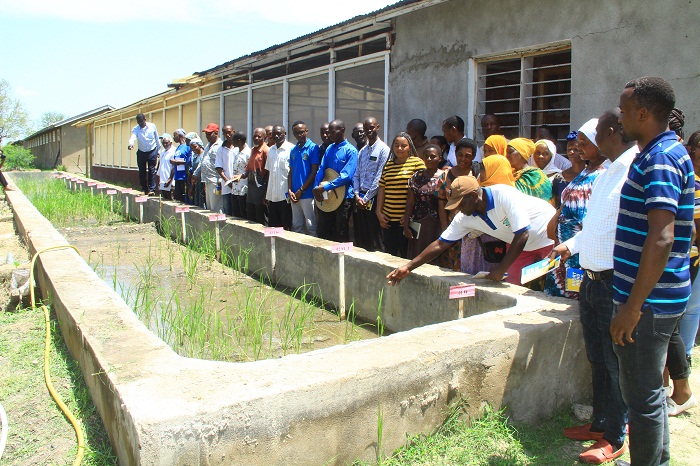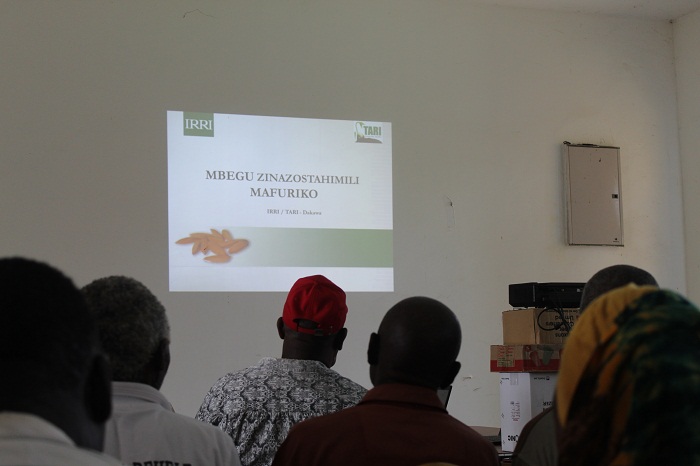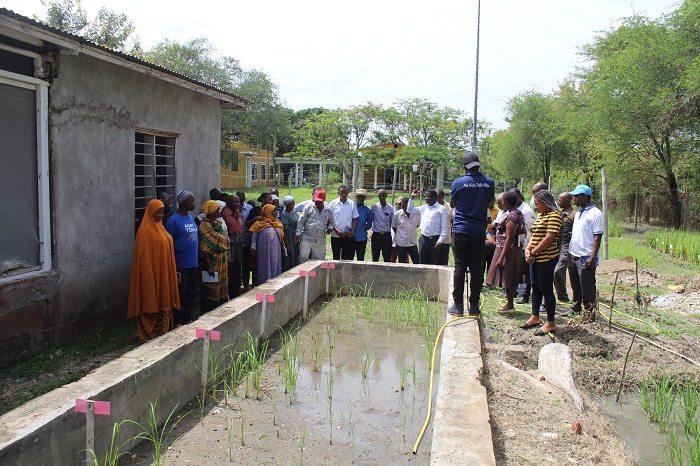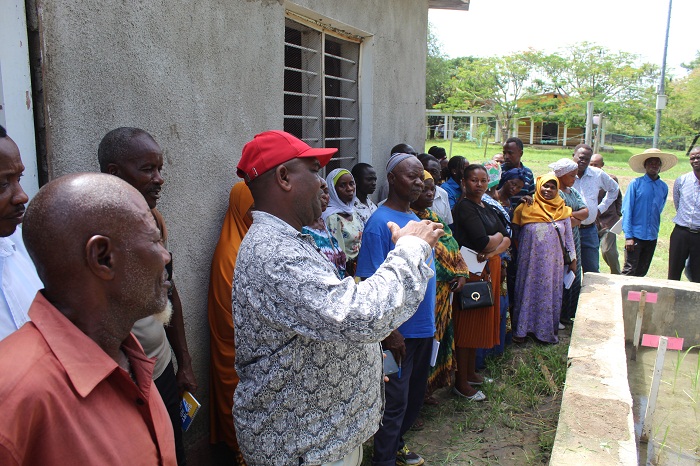Engaging rice farmers in research stimulates the adoption of submergence rice technology
- 25th January, 2023 11:07
- By NGABO.PAMBA
- News

Having an adoption perspective in mind, research calls for rice farmers to participate in research activities from design through implementation and eventually evaluation. Participatory development of the technology enhances its scale-up or scale-out and uptake by the beneficiaries.


Photo 1: Indoor orientation and field observation of training participants on the performance of the submergence rice trial set up on-station at TARI Dakawa. Courtesy: Ngabo
In that view, this round, the International Rice Research
Institute, IRRI in collaboration with the Tanzania Agricultural Research
Institute, TARI Dakawa Centre hold training of more than thirty participants
- twenty four (24) smallholder farmers, two agricultural extension workers, and
agro-dealers - who in one way or another are affiliated to Dakawa Irrigation
Scheme based at Mvomero District, Morogoro Region, in Tanzania. The event aims
to involve the participants in the submergence rice seed project under
designing processes carried out on the 20th of January 2023 at Dakawa. Others who participated are researchers from IRRI Dakawa substation and TARI Dakawa
centre.
As already noted, such engagement is intended to capture innovative ideas from farmers in order to generate appropriate rice seed that survives in flood environments. Also, the research wanted to build farmers’ confidence about the technology to be developed; own it hence its adoption once the project excels.

Photo 2: Mr. Nasibu Katoto, one of the participants gives out his views on the progress of the trial. Courtesy: Ngabo
If succeeded, the rice seed generated will contain among the attributes that most rice farmers in Africa including Tanzania prefer to; those are high yielding, tolerance to flooding, good taste and flavor, long slender, and aromatic rice.
In the event, after indoor theoretical orientation of the project made by research, farmers observed the performance of the released and well-adopted rice varieties in Tanzania and West Africa which, are under submergence research after the introduction of Sub 1 and Sub 2 genes of tolerance to floods into the most preferred improved rice varieties. Actually, this allowed farmers to air out their voices, opinions, and or recommendations for improving the project.
IRRI and TARI Dakawa reserve a long history of success stories of generated rice technologies that suit the needs of their beneficiaries including farmers. This time again, let’s hope that farmers facing recurring floods will get the solution as they participate in research with the institutes.

